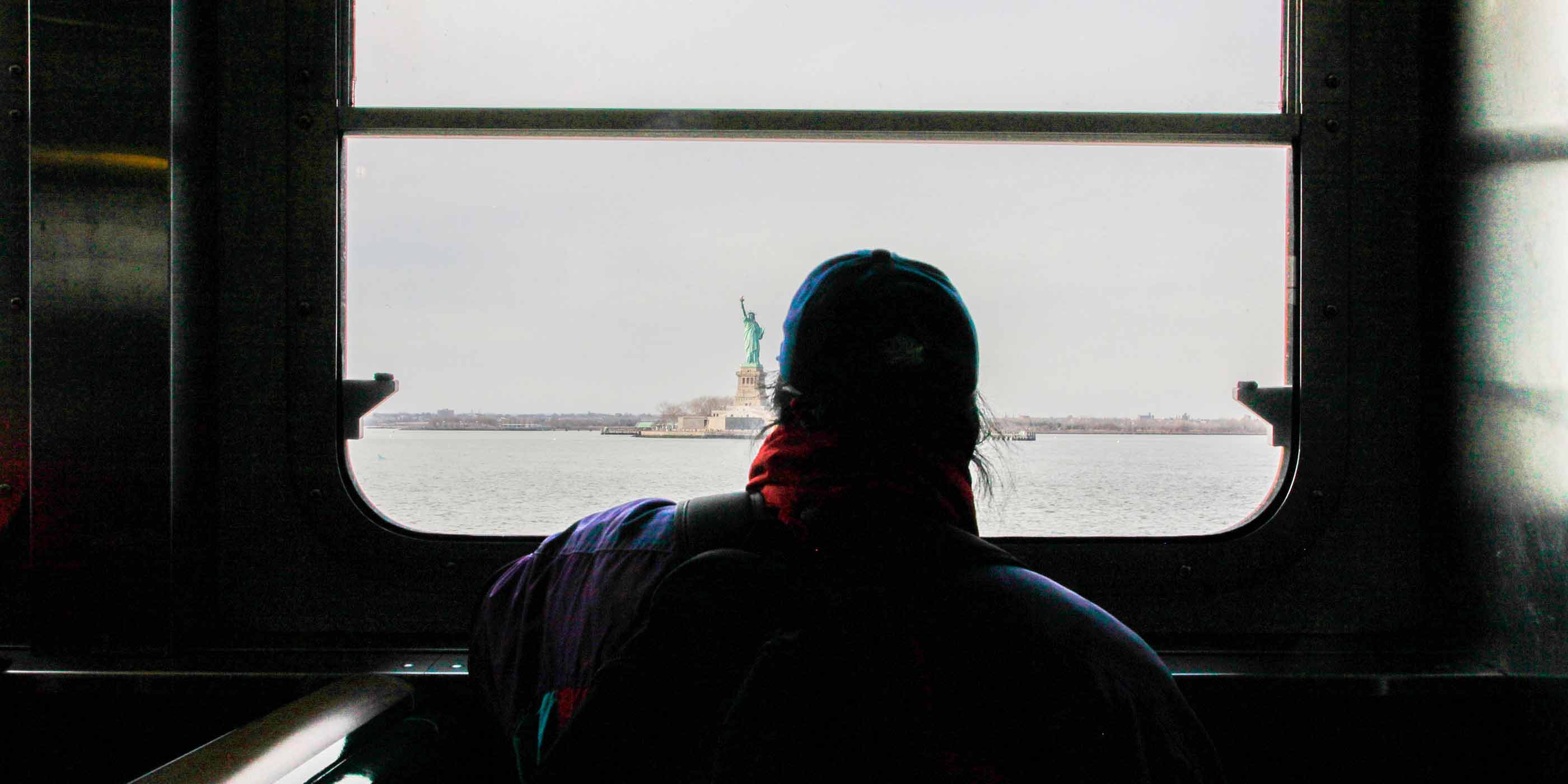
Photograph: Copyright 2020 American Civil Liberties Union. (Ashoka Mukpo).
The US Supreme Court heard a landmark case brought by a Tamil asylum seeker this month, which could have wide-reaching implications for Washington’s fast-tracked immigration and deportation processes.
Vijayakumar Thuraissigiam, a Tamil asylum seeker who reached the United States via a gruelling eight-month journey through South and Central America, was arrested just 25 yards north of the US-Mexican border and placed in expedited removal proceedings which deemed he could be deported to Sri Lanka. After years in Immigration and Customs Enforcement (ICE) custody, his challenge of a particularly arbitrary US immigration policy has now reached the highest court in the federal judiciary.
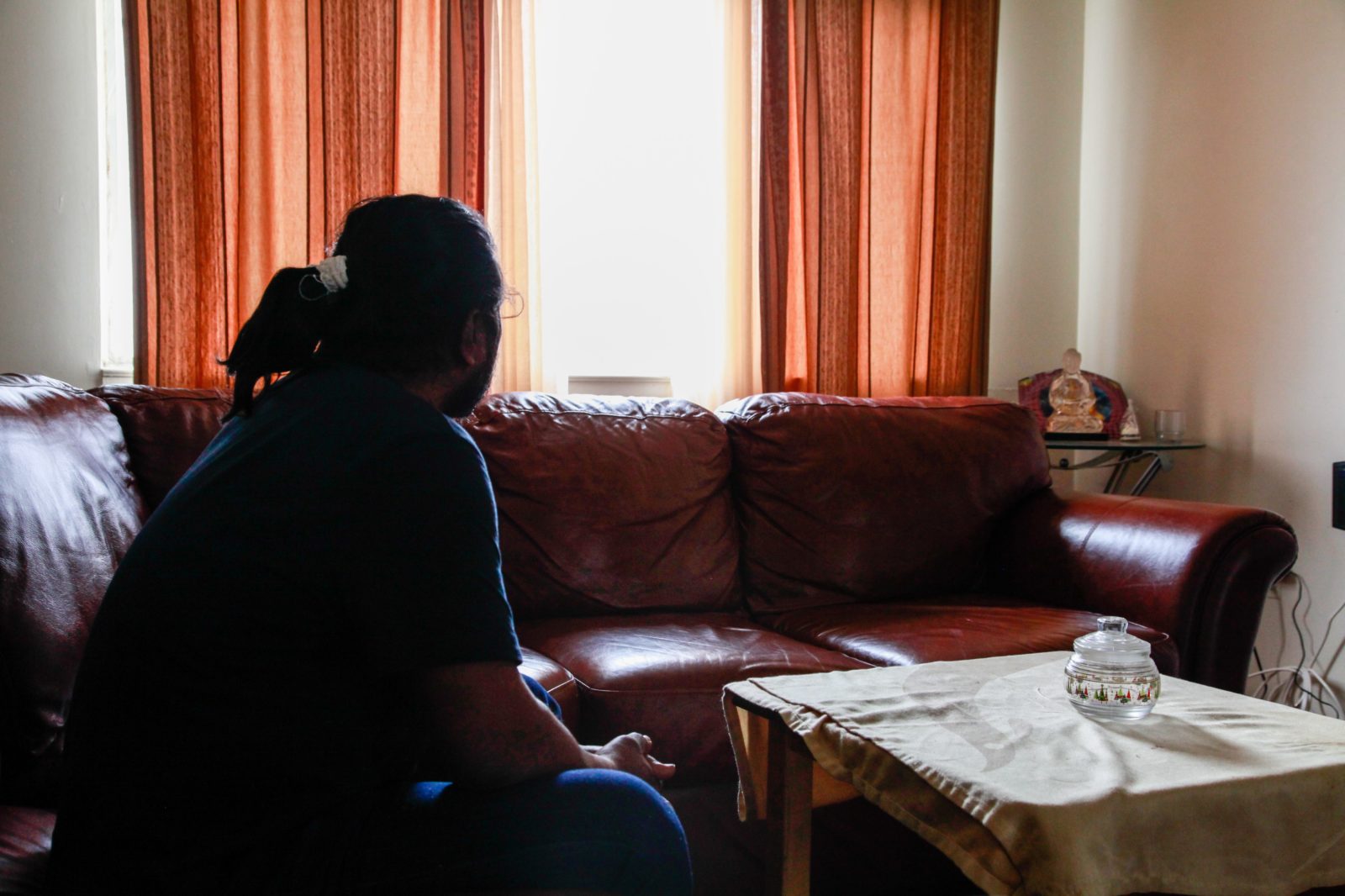 Photograph: Copyright 2020 American Civil Liberties Union. (Ashoka Mukpo).
Photograph: Copyright 2020 American Civil Liberties Union. (Ashoka Mukpo).
He had fled Sri Lanka after a group of unknown men, abducted him in a white van and tortured him in 2014. The men repeatedly questioned him about his political activities, which included his work for the Tamil National Alliance (TNA). His injuries led to him being hospitalised for 11 days. He decided there was no option but to flee the island, undertaking a journey to the US that he described as “very hard” to the American Civil Liberties Union (ACLU), stating that there was one period where he ate nothing but biscuits for eight days.
“The abduction that Mr. Thuraissigiam recounted at his credible fear interview mirrors the notorious pattern of “white van abductions” perpetrated by the Sri Lankan government,” said a brief from professors of Sri Lankan politics submitted to the court. They added that the case was “a textbook example” of the Sri Lankan government’s persecution that “specifically targeted” politically active Tamils such as Thuraissigiam.
Asylum denied
However, despite the facts of the case, Thuraissigiam fell prey to a US policy that allows for the "expedited removal" of certain migrants within 100 miles of the border, who have been in the country for two weeks or less. It is a US policy that has been in place since 1996 but has "dramatically" expanded under the Trump administration according to the American Immigration Council.
"One of the major problems with expedited removal is that the immigration officer making the decision virtually has unchecked authority," the American Immigration Council added. “In essence, the immigration officer serves both as prosecutor and judge.”
The ACLU, which is representing Thuraissigiam, said that he was subjected to “a cursory and inadequate interview” from an asylum officer, where there were reported issues with translation and no lawyer present. Though the asylum officer believed Thuraissigiam’s testimony, it was deemed insufficient for asylum, finding that he did not "credibl[y] fear" for his life.
The only option left was to appeal the decision before an immigration judge, which unlike federal judges, are part of the US Department of Justice and therefore not independent from the executive branch of the government. His hearing lasted 13 minutes. The immigration judge upheld the original decision and approved expedited removal to Sri Lanka.
“For Thuraissigiam, receiving an expedited removal order meant that a federal judge wouldn’t be able to take a closer look at whether the asylum officer made mistakes during the screening process or failed to follow appropriate procedures,” said the ACLU. “Instead, he was going to be quickly sent back to Sri Lanka, right back into the hands of his torturers.”
The road to the Supreme Court
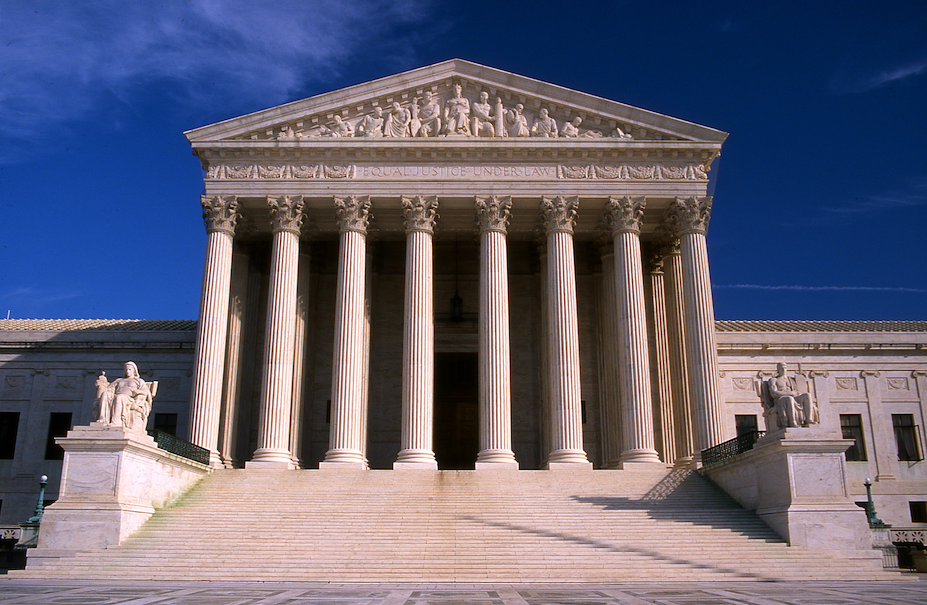
File photograph: US Supreme Court
It was in light of that immigration ruling that the ACLU decided to take on Thuraissigiam’s case. The organisation argued that by denying asylum seekers access to a federal judge, it essentially violated the Habeas Corpus Suspension Clause of the US Constitution.
Their argument had traction and worked its way to the Ninth Circuit Court of Appeals which ruled in their favour. The Trump administration though appealed the decision, paving the way for the hearing at the Supreme Court. The case, Department of Homeland Security v. Thuraissigiam, which was heard earlier this month, saw the Justices divided along ideological lines. Conservative justices seemed to signal support for the Trump administration, whilst more Liberal justices appeared to agree with the ACLU's argument.
Proceedings brought up a range of issues, including when Justice Samuel Alito seemed to question the nature of Tamil repression in Sri Lanka.
“The fact that he was beaten up in Sri Lanka and he's a Tamil...that provides a sufficient basis for asylum?” questioned Alito.
“It was much more specific than that,” responded Lee Gelernt, the ACLU counsel of record for Thuraissigiam. “It was men in a van. That's what's always used. It's called the 'white van' phenomena. He repeatedly said he thought he was arrested. He was blindfolded. That's part of the M.O. So it was the exact pattern.”
“One of the challenges to this case, and several others I have provided expert support to, is that the assessment of each country and their capacity for repression, is largely based on factors that satisfy international perceptions but are not experienced as a "shift in context" for the persecuted minority,” Nimmi Gowrinathan told the Tamil Guardian last week.
Gowrinathan, a Visiting Research Professor at the Colin Powell Center for Global and Civic Leadership at City College New York, was one of the professors that provided expert advice to the case.
“We have seen in Sri Lanka, Myanmar, and elsewhere that a state can maintain the facade of democracy and meet the minimum standards of participating in "post-conflict" development and transitional justice processes while still using violent tactics of repression against minority populations,” she added.
A landmark case
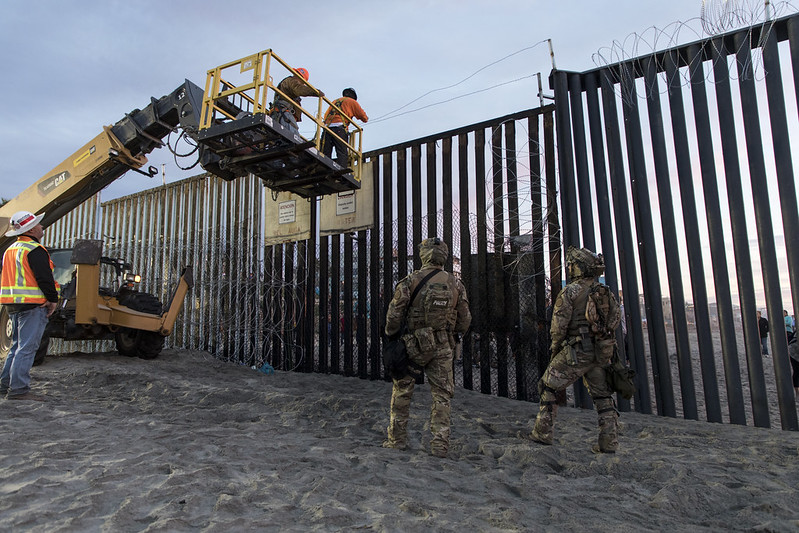
File photograph: U.S. Border Patrol stands watch during border wall reinforcement
The US administration’s expedited removal policy has been devastatingly effective at deporting asylum seekers since it was first introduced. And since Trump took office, it has become even more ruthless. The ACLU notes that after border patrol agents started conducting interviews instead of trained asylum officers last year, for instance, approval rates dropped sharply. The ACLU also said that deportations are occurring within a much quicker window, making it difficult for asylum seekers to challenge the system the way Thuraissigiam has.
That is why his case has caught the attention of so many.
“If the ACLU wins this case, an appeal by the federal government for a previous win, it would in effect prevent the immediate deportation of any asylum seeker at U.S. borders,” said Gowrinathan. “Gathered in spaces like San Ysidro, California are refugees from state violence in El Salvador, Syria, Sri Lanka, Honduras among others for whom Mexico was the last possible route to safety. In those border hearings, Tamils will likely face less bias in the courtroom than those for whom this administration has created a deeply racist narrative, but a positive judgment would mean nobody can be deported on arrival.”
The case itself has “historic implications” that are “bigger than all the other immigration stuff that Trump’s doing”, said Gelernt. “This goes to a fundamental question about the structure of our government and the rule of law, about whether there’s gonna be a fair process for immigrants… And so it transcends any particular change in the substance of immigration law.”
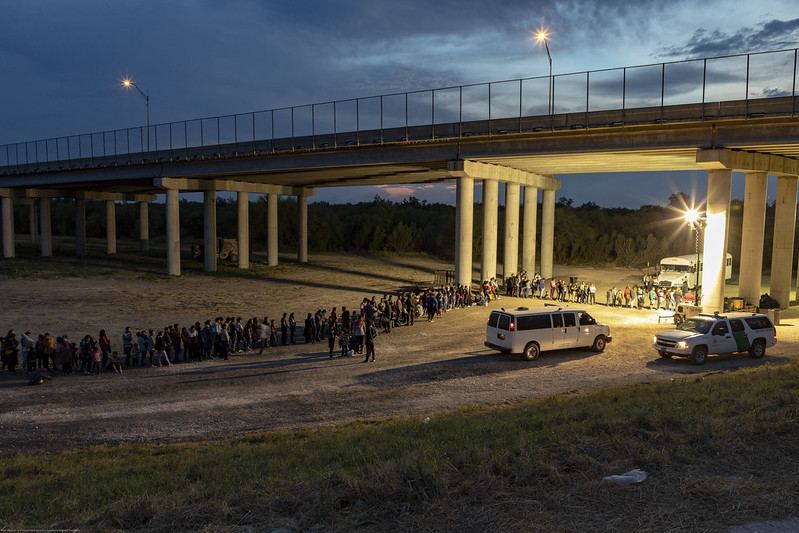
File photograph: Migrants Surrender to U.S. Border Patrol
Gowrinathan, who has written on the narratives of both Tamil and non-Tamil women at the border, went on to speak on the significance to all those who are seeking asylum. “At a moment where political struggles seem increasingly stuck inside the limits of narrow identity politics, this case was particularly significant in revealing the interconnected nature of all struggles against state violence,” she said. “While few people in the United States will have heard of violence against the Tamils in Sri Lanka, this case will impact every man, woman, and child entering the U.S. and determine whether they are allowed the opportunity for their case to, at the very least, be heard.”
“When we are watching Western countries quite literally beat back the asylum seekers fleeing the violence often fueled by Western intervention, it is important to see this case, and its eventual outcome, as not only a recognition of state violence abroad but an indictment of the Western governments who are increasingly unconcerned with maintaining even a pretence of commitment to the universal rights of human beings."
